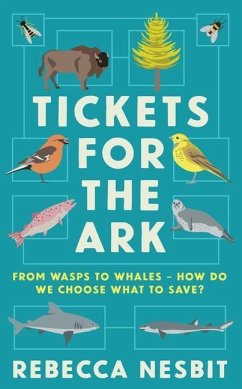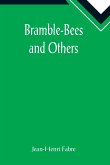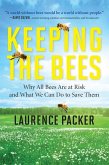Our planet hasn't seen the current rate of extinction since the demise of the dinosaurs 65 million years ago, and global conservation efforts are failing to halt this. As a society, we face choices which will determine the fate of Earth's estimated 8.7 million species, including humans. As wildlife declines, conservation needs to make trade-offs. But what should we conserve and why? Are we wrong to love bees and hate wasps? Are native species more valuable than newcomers (aka invasives)? Should some animals be culled to protect others, or for our own economic interests? What do we want the 'natural world' to look like, and how can we shape a world in which wildlife and people can thrive?
Hinweis: Dieser Artikel kann nur an eine deutsche Lieferadresse ausgeliefert werden.
Hinweis: Dieser Artikel kann nur an eine deutsche Lieferadresse ausgeliefert werden.








